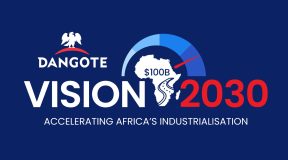Nigeria’s total public debt may rise by about ₦40.61 trillion to reach nearly ₦193 trillion if all loan requests submitted by President Bola Tinubu to the National Assembly in 2025 are approved and fully disbursed.
The potential increase representing around 26.6 percent of the nation’s existing debt stock as of June 2025 comes amid rising fiscal pressures and growing foreign currency exposure.
According to figures from the Debt Management Office DMO Nigeria’s total public debt as of June 30 2025 stood at ₦152.4 trillion comprising ₦71.85 trillion external debt and ₦80.55 trillion domestic debt. The DMO used an official exchange rate of ₦1529.21 per dollar for its June report.
However using the Central Bank of Nigeria’s official exchange rates as of November 10 2025 ₦1437.29 per dollar ₦1662.66 per euro and ₦9.33 per yen the government’s new loan requests could push the country’s debt stock to approximately ₦193.01 trillion equivalent to $134.3 billion.
This would raise Nigeria’s external debt component to over 57 percent of the total deepening foreign currency exposure.
President Tinubu has made at least three major loan requests in 2025.
In May 2025 approval was sought for a $21.5 billion external loan €2.19 billion ¥15 billion and a ₦758 billion domestic bond to fund the 2025–2026 borrowing plan infrastructure projects and pension liabilities. The Senate approved this in July 2025 with lawmakers noting that the borrowing aligns with the Medium Term Expenditure Framework and the 2025 budget.
In October 2025 another request for $2.3 billion in external loans and a $500 million debut sovereign sukuk to part finance the 2025 budget deficit and refinance maturing Eurobonds was also approved.
In November 2025 a new ₦1.15 trillion domestic borrowing plan was sent to the legislature to close the funding gap in the ₦59.9 trillion 2025 budget and clear outstanding contractor payments. This proposal is still under review.
Government officials have defended the borrowing as necessary for infrastructure development and budget implementation while critics warn that Nigeria could be drifting toward unsustainable debt levels.
Data from the DMO shows that Nigeria’s total public debt has grown by ₦65.02 trillion within the first two years of President Tinubu’s administration a 74.4 percent increase from ₦87.38 trillion in June 2023 to ₦152.4 trillion in June 2025.
While some of the rise came from new borrowing much of it resulted from the sharp depreciation of the naira which nearly doubled the local currency value of external loans after the unification of exchange rates in mid 2023.
Between June 2023 and June 2025 the naira fell from ₦770 per dollar to ₦1529 per dollar significantly inflating the value of foreign denominated debt. External debt grew modestly in dollar terms from $43.16 billion to $46.98 billion but its naira value jumped by ₦38.6 trillion.
Domestic debt also climbed by ₦26.42 trillion largely due to increased issuance of government bonds Treasury bills and the securitisation of the Central Bank’s overdraft facility Ways and Means.
At the Nigerian Economic Summit DMO Director General Patience Oniha maintained that Nigeria’s debt remains sustainable with a debt to GDP ratio of about 40 percent well below the 70 percent benchmark for emerging economies.
However several economists and civil society leaders have expressed deep concern.
Dr Muda Yusuf CEO of the Centre for the Promotion of Private Enterprise warned that Nigeria’s debt service costs already exceed capital spending creating fiscal stress. He urged the government to focus on revenue growth and stricter spending controls.
Similarly Vahyala Kwaga Deputy Country Director at BudgIT cautioned that Nigeria risks breaching its debt threshold and called for greater transparency in loan utilization.
Auwal Rafsanjani Executive Director of the Civil Society Legislative Advocacy Centre CISLAC accused the government of mismanaging previous loans and alleged that some borrowings serve political rather than developmental purposes.
Emmanuel Onwubiko National Coordinator of the Human Rights Writers Association of Nigeria also criticised the borrowing spree calling it reckless and harmful to the country’s future.
If all 2025 loan requests are approved and disbursed Nigeria’s total debt could reach ₦193 trillion with external obligations rising to about ₦111.45 trillion and domestic debt to ₦81.56 trillion.
While the government insists borrowing is essential for growth and infrastructure economists warn that without a stronger revenue base and fiscal discipline the country could face an escalating debt service crisis that crowds out investment in critical sectors.


